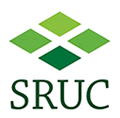The technology-based on synthetic plastics has played a vital role in various applications in numerous industries, including packaging to automotive. The use of plastics in the modern world has been increasing rapidly due to the relative ease of production and specific set of properties of polymers employed in producing these materials compared to traditional metallic and ceramics-based materials. However, some critical disadvantages of these materials regarding human and environmental ecology, including being unsafe to handle and posing health risks when inhaled, non-biodegradability, corrosiveness, and non-recyclable, have raised several apprehensions in the community. In recent years, the use of renewable biomass as raw material to produce fuels and chemicals to displace fossil resources has been the focus of many research activities. These activities have been motivated by the possibility of positive contributions to a sustainable resource supply, enhanced national security, and macroeconomic benefits for rural communities and society all around the globe.
Undoubtedly, there is an urgent need to develop new sustainable materials from biorenewable resources. Essentially all materials used in the production of synthetic plastics are derived from the petroleum-based feedstock. Additionally, a few synthetic materials contain some biobased components in actual industrial applications. Indeed, we are faced today with unique opportunities to further the effective and efficient use of biorenewable resources like agricultural biomass waste (e.g. hemp fibres). The increased usage of synthetic polymers and related appliances at home and in industries has raised significant concern for a sustainable environment.
Little attention has been directed towards utilising bio-renewable resources like agricultural biomass waste (e.g. hemp/flax; sugar cane/ beet) combined with bio-derived carbon nanomaterial for value-added materials and their industrial applications. Adding value to waste biomass production from biorenewable resources and finding sustainable alternative sources for existing petroleum-based products will have a substantial and long-term impact on the economy, the environment and energy independence and security of the Scotland and UK.
This research explores the transformation of agricultural biomass sourced waste materials into value-added nanoproducts, taking full advantage of the incredible structural richness and diversity of the agricultural materials for packaging and automotive, to name a few. This research will result in breakthrough step-changes in the effective utilisation of biorenewable resources leading to sustainable materials with new and improved properties, lower cost, more environmentally friendly, and thus more acceptable to consumer markets. It will also generate advanced technologies enabling new market opportunities for biorenewable resources while reducing the environmental footprint relative to synthetic materials from petroleum feedstock.
HOW TO APPLY
Application instructions can be found on the SRUC website- PhD opportunities | SRUC
- Download and complete the Equal opportunities survey and note the completion reference
- Download and complete the SRUC Application form
- Download the Academic Reference Request and send to two referees requesting they submit to [Email Address Removed] by the closing date.
Send your application including the following to [Email Address Removed]:
- Completed Application form quoting REF SRUC/ViT
- Academic Qualifications
- English Language Qualification (if applicable)
Unfortunately, due to workload constraints, we cannot consider incomplete applications. Please ensure your application is complete by Thursday 5th January 2023.

 Continue with Facebook
Continue with Facebook



